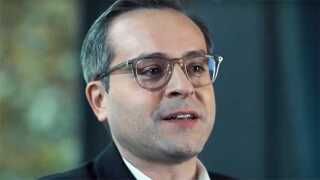An ever-present drain on profitability, fraud in telecoms takes many forms, but in a highly interconnected industry no one stakeholder can tackle the problem alone.
From fraud in traffic and settlement, to international revenue sharing, The Global Leaders’ Forum (GLF) calculates the cost to the industry to be US$17 billion a year, while Europol says it is a “low-risk alternative to traditional financial crime” for perpetrators.
The industry’s extensive work to tackle the issue head on has seen the GLF’s 31 member organisations engage in a multitude of initiatives, including the anti-fraud working group and the code of conduct, introduced in 2018.
“We also track the evolution of fraud over time to see what its impact is on the carrier market,” says Christian Michaud SVP at Tata Communications and leader of the Global Leaders’ Forum anti-fraud working group.
Passionate about anti-fraud in the industry Michaud says that one of the highlights of this work is “the feeling that hackers are having a harder time making a dollar”.
The work itself involves identifying new – and increasingly elaborate – fraud schemes and sharing insights on the best ways to address them; keeping informed and ahead of new regulatory changes; sharing experiences from using ML and AI to tackle fraud; and measuring the progress of the code of conduct.
Other parts of the work are localised for various markets, with emphasis on uncovering the unique fraud issues that exist in certain geographies, as well as addressing specific country numbering plan abuse.
Beyond rules-based
It isn’t just the frequency or volume of attacks, but the growing sophistication of them that is exacerbating their impact.
As their systems and tech arsenal advance, Michaud observes that carriers can no longer invest and depend solely upon rules-based defence; instead the approach must draw on the same emerging tech that malicious actors employ.
“Carriers absolutely need to start exploring, testing and investing in machine learning and AI, and not only for voice services, but across all lines of business, as often fraud affects overall services, whether A2P, internet, voice, or others,” Michaud says.
In uniting the fight, the GLF is encouraging carriers to attest their adherence to its code of conduct, and a new survey will be launched in the coming weeks to measure the extent to which carriers have been adopting and implementing the code in their day-to-day business operations.
This will be followed in July with the Global Telco Fraud Summit 2020, a thought-leadership forum for telco service providers as well as infrastructure leaders to help protect networks – all held virtually.
“You want to know that your carriers are abiding by the industry’s best standards,” Michaud says.
“If carriers sign the code but have a half-hearted approach to fraud management and have no internal code to abide by, they will – unknowingly or knowingly – be a conduit for fraud traffic. Hackers follow the path of least resistance. Carriers that are easy to interconnect with, or those that have no C-level policy on fraud prevention, are easy targets,” he continues.
Hand in hand
Collaboration is key. Not only is Michaud is involved in the GLF’s partnerships with other working groups – including the i3forum Fight Against Fraud workgroup, CFCA and MEF in the mobile ecosystem – he also advocates for these various platforms to share best practice.
“One incident learnt from another carrier easily saves hundreds of thousands of dollars, if not more,” says Michaud.
In fact, Michaud says collaboration is such a successful strategy, even the hackers doing it.
“The hacker community shares significantly more that the carrier community,” he says.
“We are restricted in terms of non-disclosure agreements, revealing suspect supplier or customer information, we are beyond careful in divulging information and only share some aspects of the fraud puzzle. However, collaboration is critical to our ability to fight fraud,” Michaud adds.
Despite the exemplary work underway, not everybody in the industry is involved, leading to points of weakness that can ripple through to other areas, and it is this topic that Michaud explores at ITW 2020. In what ways can various industry bodies work together effectively to create a cohesive strategy around fraud mitigation?
“We are an ecosystem of customers, suppliers and early technology adopters all at the same time. For me, the collaboration between carriers and different working groups, as well as policies adopted by the carriers to effectively fight fraud, will be key,” he says.
Ultimately, Michaud promises the discussion will explore “actionable insights” to improve and safeguard the position of carriers and overall customer satisfaction. However, he is also keen to stress that talking about a solution is not the same as implementing one and that, at the end of the day, fighting fraud in telecoms is a case of all for one and one for all
“Yes we all have our unique customer base, but offering truly global communications requires each working together – and a weak link ultimately affects everyone.”





